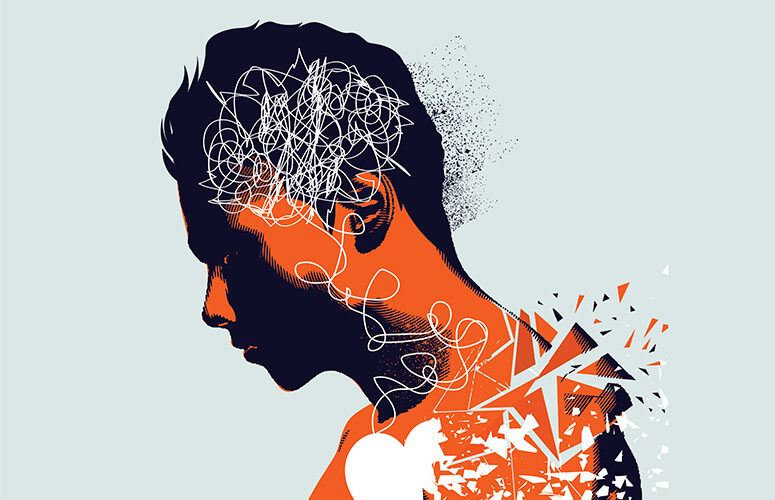
The Head-Heart Connection
On Feb 14, 2023The heart is often thought of as a symbol of our emotions. “Scientists have uncovered a clear link between emotions and heart health, identifying that depression, stress and/or anxiety may make it more likely for individuals to experience a heart attack or heart failure in the future,” explains Gary Rogal, MD, FACC, medical director for cardiovascular services at RWJBarnabas Health. “In particular, researchers have found that anxiety can increase the body’s level of stress hormones, which elevates blood pressure. People with chronic anxiety are therefore more likely to develop high blood pressure, and people with high blood pressure are more likely to be anxious.”
The relationship goes both ways.
- Adults with coronary artery disease (CAD) are at an increased risk for depression.
- Adults with anxiety are more likely to develop CAD.
- Anxiety is more likely to be elevated in adults who have experienced acute coronary syndrome.
What does anxiety do to the body? Anxiety and stress may be associated with the following cardiac risk factors:
- Release of the stress hormone cortisol, which can overstimulate the cardiovascular system
- Rapid heart rate (tachycardia)
- Increased blood pressure
- Decreased heart rate variability
How does depression affect the heart?
Biological: It’s linked with elevated blood pressure and heart rate, greater levels of inflammation, and increased risk of blood clots.
Behavioral: Depressed people are less likely to take the steps outlined by their physician to ensure good health.
Anxiety and depression can also keep a person from taking steps that would lead them toward a healthier lifestyle, such as exercising, following medical regimens prescribed by their doctor, preparing healthy meals, deep breathing, and maintaining proper sleep hygiene – all items that not only benefit heart health, but positively impact other body systems as well.
What should I do?
- Follow a healthy diet.
- Tell your healthcare provider how you’re feeling.
- Limit alcohol: For women, no more than one drink a day; for men, two drinks.
- Increase physical activity.
- Consider talking with a mental health counselor.
- Ask your doctor if prescription medications may help.
“Cardiovascular disease is a unique medical problem in that lifestyle modification is a potent tool to modify the course of the disease process,” explains Dr. Rogal. “A patient’s choice to pursue this avenue can have a profound impact on outcomes. This is unlike many other disease states.”
Dr. Rogal also encourages patients who may be experiencing mental health issues to talk to a trusted physician who can help them find the necessary support and tools to empower them to make the best choices for their future and long-term health.
To access more business news, visit NJB News Now.
Related Articles:





